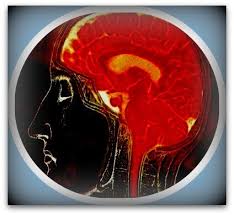
Encephalitis
It is an inflammation of the brain caused most common by viral infection, but some other causes are there.
Symptoms:
· Headache
· Fever
· Aches in muscles or joints
· Fatigue or weaknessConfusion, agitation or hallucinations
· Seizures
· Loss of sensation or paralysis in certain areas of the face or body
· Muscle weakness
· Problems with speech or hearing
· Loss of consciousnessBulging in the soft spots (fontanels) of an infant's skull
· Nausea and vomiting
· Body stiffness
· Irritability
Types:
· Primary encephalitis. It is due to reactivation of a virus that had been inactive after a previous illness.This is occurred when a virus or other agent infects directlyto the brain. The infection may be concentrated in one area or widespread.
· Secondary encephalitis. This condition results from a faulty immune system reaction to an infection elsewhere in the body.
Causes:
· Herpes simplex virus (HSV).
· Other herpes viruses. These include the Epstein-Barr virus, which commonly causes infectious mononucleosis, and the varicella-zoster virus, which commonly causes chickenpox and shingles.
· Enteroviruses. Which usually cause an illness with flu-like symptoms, eye inflammation and abdominal pain,such as the coxsackievirus and poliovirus.
· Mosquito-borne viruses. Such as La Crosse, West Nile, western equine,St. Louis and eastern equine encephalitis.
· Tick-borne viruses.
· Rabies virus. Infection with the rabies virus, which is usually transmitted by a bite from an infected animal, causes a rapid progression to encephalitis once symptoms begin. Rabies is a rare cause of encephalitis in the United States.
· Childhood infections. Such as mumps, measles (rubeola), and German measles (rubella)
Risk factors:
· Age
· Weakened immune system.
· Geographical regions
· Season of the year. Mosquito- and tick-borne diseases tend to be more common in summer in many areas of the United States.
Complications:
· Your age
· The cause of your infection
· The severity of your initial illness
· The time from disease onset to treatmentPersistent fatigue
· Weakness or lack of muscle coordination
· Personality changes
· Memory problems
· Paralysis
· Hearing or vision defects
· Speech impairments
Preventions:
· Practice good hygiene. Wash hands frequently and thoroughly with soap and water, particularly after using the toilet and before and after meals.
· Don't share utensils. Don't share tableware and beverages.
· Teach your children good habits. Make sure they practice good hygiene and avoid sharing utensils at home and school.
· Get vaccinations. Keep your own and your children's vaccinations current. Before traveling, talk to your doctor about recommended vaccinations for different destinations.
Diagnosis:
· Brain imaging. MRI or CT images can reveal any swelling of the brain or another condition that might be causing your symptoms, such as a tumor.
· Spinal tap (lumbar puncture)
· Other lab tests. Samples of blood, urine or excretions from the back of the throat can be tested for viruses or other infectious agents.
· Electroencephalogram (EEG). Electrodes affixed to your scalp record the brain's electrical activity. Certain abnormal patterns may indicate a diagnosis of encephalitis.
· Brain biopsy
Treatment:
· Bed rest
· Plenty of fluids
· Anti-inflammatory drugs such as acetaminophen, ibuprofen and naproxen sodium to relieve headaches and fever.
Antiviral medications commonly used to treat encephalitis include:
· Acyclovir (Zovirax)
· Ganciclovir (Cytovene)
· Foscarnet (Foscavir)
Encephalitis, inflammation, brain tissue,viral infections